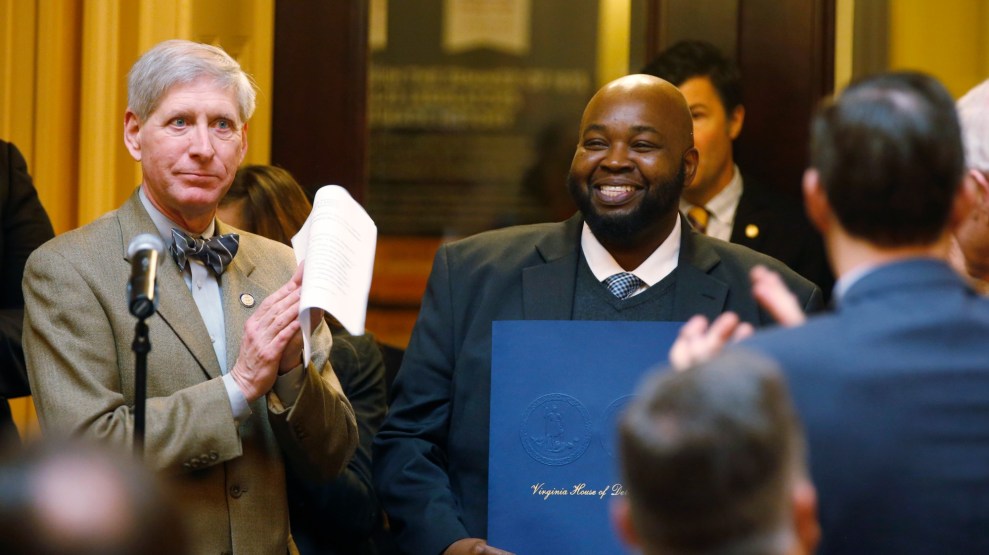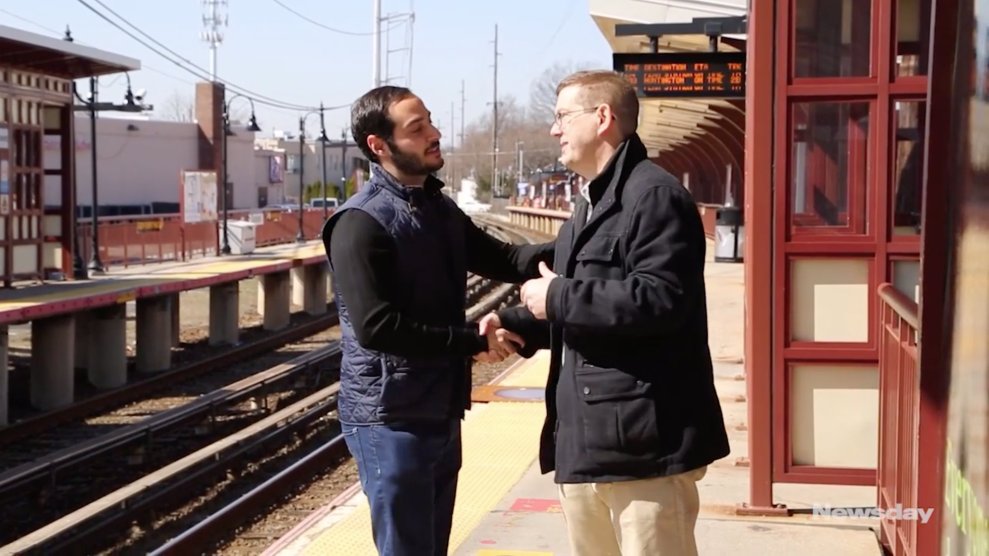
Rodney Robinson on the floor of the Virginia House of Delegates.Steve Helber/AP
Welcome to Recharge, a weekly newsletter full of stories that will energize your inner hellraiser. See more editions and sign up here.
Rodney Robinson picked up part of his philosophy on education from his mother, who ran an in-home day care.
“She always taught us that every child deserves the proper amount of love that he or she needs,” the Virginia educator told CBS News. “That was my first lesson in equity.”
That’s what Robinson has done in 19 years as a teacher in Richmond, Virginia, first in traditional schools and now at a school in the city’s juvenile detention center.
On Monday, Robinson was honored at the White House as America’s Teacher of the Year. Robinson, who won Richmond Public Schools Teacher of the Year in November 2017, was one of four finalists for the national award.
Robinson will spend the next year traveling the country with two messages: Impoverished students need more resources, and students of color need more teachers who look like them. Robinson himself only had one black teacher through high school. At the detention center, he plasters the walls of his classroom with leaders of color to inspire his students.
At his school, Robinson specializes in outlining second chances for those who have made bad life decisions. “Our job is to give them hope,” Robinson told the Richmond Times-Dispatch.
President Trump, who skipped the official ceremony led by Education Secretary Betsy DeVos, later invited Robinson to an Oval Office chat in which he extolled the teacher’s efforts to help juvenile offenders find a new path for their lives.
Jason Kamras, superintendent for Richmond’s public schools, said Robinson has a powerful message of equity, inclusion, and justice. “As Rodney has so powerfully demonstrated with his work, our greatness as a country comes from the millions of people of all backgrounds who strive every day to right the wrongs of the past so we can become a more perfect union.”
He’s also is in tune with his students, said Doron Battle, a former pupil at Robinson’s previous school. Battle recalls a lesson on the World War II battle of Normandy where Robinson showed scenes from Saving Private Ryan to make students feel the material.
“He had a way of bringing it all in and made things he was telling us come to life,” said Battle, now a Richmond teacher himself.
Here are some other Recharge stories to get you through the week.
- Helping out all. Falling birthrates in South Korea have made some of the nation’s elementary schools desperate for students, especially in rural areas. After being unable to find new students, one elementary school has decided to take in pupils who are older. Much older. Now, some of the nation’s rural illiterate grandmothers, deprived of education generations ago, are showing up for class. “Writing letters to my children, that’s what I dreamed of the most,” said 70-year-old Hwang Wol-geum, who said she’s having fun attending first grade with three of her grandchildren. Her son, Kyong-deok, agreed: “My mother has become a much happier person since she began going to school. Smiles hardly seem to leave her face.” (New York Times)
- Feeding a starving nation. Working with kids in poor communities in Venezuela, Roberto Patiño watched as food sources dried up. Over the past three years, the Harvard-educated social worker has set up more than 100 free dining halls to feed hungry children. His goal is to serve 10,000 kids. “Our only criterion is a child in need,” Patiño said. (Christian Science Monitor)
- Escaping a horrible past. Eddie Adams has lived in a homeless shelter and moved at least seven times before college. The principal cellist for George Washington University’s orchestra, he has borrowed books and even his instrument as he eked out a living. That was before a news report about his plight prompted a crowdfunding effort that raised more than $155,000 for him as of Tuesday. Adams immediately paid off $15,000 in student loans and went to the dentist for the first time since he was a child. “I’ve been crying all day … happy tears,” he texted his strings instructor and mentor, June Huang. (Washington Post)













